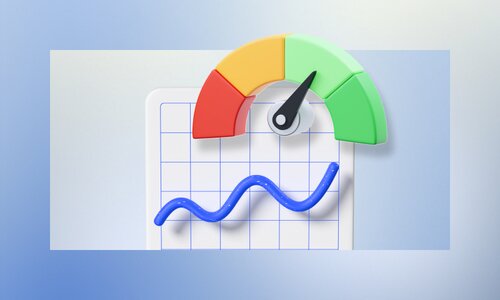Homeowners insurance protects one of the most valuable assets you’ll ever own — your home. In fact, homeowners insurance is such an essential component of buying a property that many mortgage lenders will not allow you to take out a home loan without it.
But not all homeowners insurance is created equal. And not every package covers the same potential issues.
What is homeowners insurance?
Homeowners insurance provides coverage for your home and personal property in the case of a covered loss, damage, or theft. It can also provide coverage for accidents and injuries that happen in your home or on your property.
The average homeowners insurance premium in the U.S. is $1,820 per year, though your insurance rates will vary widely depending on several factors, including the size of your home, your location, and the amount of coverage you purchase. It’s recommended that you buy enough coverage to rebuild your property if it’s completely destroyed. You’ll also want to factor in the cost of your belongings.
While buying homeowners insurance isn’t mandated by law, your home is one of your most valuable assets. Therefore, many mortgage companies will not offer a home loan unless you have sufficient homeowners insurance.
What does homeowners insurance cover?
Homeowners insurance typically covers your dwelling, other structures on the property, your personal property, and liability for injuries that may occur to others on your property. This coverage provides financial protection against loss due to natural disasters, theft, and accidents. Standard homeowners insurance policies include the following types of coverage:
Dwelling protection
This is the most basic coverage provided by homeowners insurance policies and covers the actual structure of your home, including the walls, floors, windows, and roof. Built-in appliances, such as furnaces, are included in dwelling coverage, as are an attached garage, porch, or deck. It’s important to read your policy carefully to see which events your insurance policy covers. While most homeowners insurance companies will approve claims for damage by wind, hail, ice, hurricanes, fire, lightning, and other listed perils, many will not pay for damages caused by floods, earthquakes, or routine wear and tear.
Other structures protection
Other structures coverage protects all other add-on structures on your property that are not a part of the main dwelling. These include sheds, fences, detached garages, swimming pools, etc. These structures could sustain damage during a hurricane, for example, or by wind, hail, and snow. Like with the main dwelling, the insurance coverage would typically not cover flooding, earthquakes, and wear and tear, and you’d need to take out additional coverage for those events. The insurance company will pay the full amount minus your deductible when you claim repairs.
Personal property protection
In addition to protecting your home and other structures on your property, homeowners insurance also protects your personal belongings, that is, the items in your home. For example, your insurance will likely reimburse you if your computer is stolen from your home. This coverage includes clothes, furniture, appliances that aren’t built in, and electronic devices. It protects you against fire or lightning, smoke, windstorms, hail, explosions, theft, vandalism, volcanic eruptions, falling objects, water damage from household systems like plumbing and air conditioning, and riots. Make a home inventory checklist to ensure all items are included in your policy.
There are coverage limits on your personal property coverage. You may need extended replacement cost coverage for additional luxury items such as expensive jewelry, watches, art collections, and rare books. Consider working with an insurance agent to understand policy limits and get multiple quotes. Make sure to calculate the actual cash value of your belongings while considering depreciation on certain assets.
Loss of use coverage
This coverage is also called “additional living expenses” and comes into play if your home is damaged and undergoing repairs. During that time, you’ll need to find and pay for another place to live, and your homeowners insurance will take care of this bill. Loss of use coverage typically includes hotel bills, restaurant meals, and the amount it would cost to rent an equivalent-sized home in a similar neighborhood.
Remember, however, that the damage to your home must have been caused by one of the perils mentioned in your insurance policy. If your home sustained damage due to an earthquake or a flood and these events aren’t covered by your homeowners insurance policy, then the insurance won’t cover the loss of use.
Liability protection
Your homeowners policy will also provide personal liability coverage, which helps cover you if someone is injured on your property and sues you for damages. The insurance could then pay for your legal expenses and medical expenses incurred. For example, falls off a broken step, you could claim liability protection. Your home insurance policy covers pets, too, so if someone is harmed by a pet living in your home, such as a dog bite, you may be covered. Check your insurance policy to understand the extent of your coverage and the specific situations in which it would apply. Liability insurance does not cover acts of intentional harm or any criminal activity.
Medical payments coverage
Medical payments are similar to liability protection in that it covers medical bills for someone who’s been harmed in your home. However, these medical payments tend to be minor, no lawsuit is involved, and you don’t need to be at fault for this to occur. The expenses must be “reasonable and necessary” and filed within a year of the accident.
What homeowners insurance won’t cover
When purchasing a homeowners insurance policy, you want to be extremely clear about what it will and won’t cover. For items and events that aren’t covered by your policy, you may be able to add endorsements for extra protection. For example, you may want to buy additional flood insurance if you live in a flood-prone area. Homeowners insurance will generally not cover damage from the following exclusions:
- Flooding from heavy rainfall or storms
- Earthquakes, landslides, and sinkholes
- Infestations
- Daily wear and tear (or neglect)
- Drain, sewer, and sump pump backups
- Power failures
- Government action (such as war)
- Nuclear hazard
- Mold damage
- Ordinance or law (for example, changes in building codes)
Types of home insurance policies
A few different types of policy forms allow for various types of coverage. These include:
- Broad form policy (HO-02): This policy insures your home and other structures for covered perils listed in the policy.
- Special form policy (HO-03): This is the most common type of homeowners insurance policy and covers all perils except those specifically excluded (such as floods and earthquakes).
- Comprehensive form (HO-05): This policy is typically used for expensive homes and covers all perils except those specifically excluded.
- Modified form coverage (HO-08): If the cost to rebuild your home exceeds the property’s market value, this is the policy you’ll need.
The bottom line
While homeowners insurance is not legally mandatory, most lenders will require it before they give you a home loan. Plus, with the additional security that homeowners insurance provides, it’s a good idea to make sure your coverage is enough to pay for the cost of rebuilding a home if it were to be destroyed entirely.
Interested in investing in real estate but not yet ready to buy a home? Arrived can help. Through our platform, you can purchase shares of rental properties and start building a portfolio today.
The opinions expressed in this article are for general informational purposes only and are not intended to provide specific advice or recommendations for any individual or on any specific security or investment product. The views reflected in the commentary are subject to change at any time without notice. View Arrived’s disclaimers.








